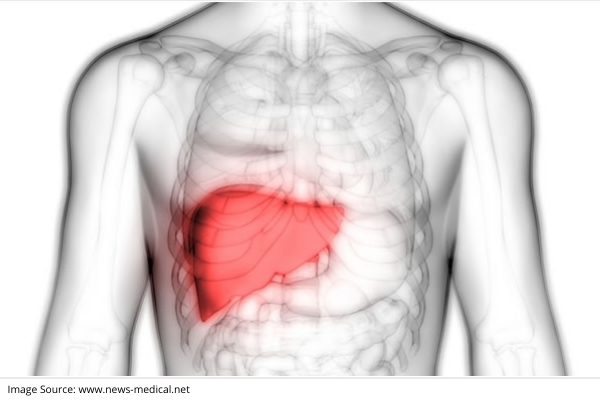

LIVER & LIVER DISEASES: KNOW THE FACTS

Liver is a vital organ of the human body. It is one of the organs that is responsible for hundreds of chemical reactions that the body needs to survive. It has many functions like making proteins, blood clotting factors, bile production etc. It is both an organ and a gland as well as the largest internal organ of the human body. It is located in the upper right portion of the abdominal cavity under the diaphragm and to the right of the stomach. The liver consists of 4 lobes.
Liver functions
Liver makes many of the chemicals required by the body to function normally, it breaks down and detoxifies substances in the body and also acts as an unit for storage. Hepatocytes are responsible for protein synthesis. It is also required for blood clotting and albumin which is needed for maintaining the fluid within the circulation system.
Illnesses that affect liver
- Excessive amounts of drugs like acetaminophen and acetaminophen combination medications.
- Cirrhosis
- alcohol abuse
- hepatitis A, B, C, D and E.
- Epstein Barr Virus
- non-alcoholic fatty liver diseases
- iron overload
Liver Failure
The diseases attributed to liver is stereotypically linked to alcohol or drugs. However, there are over 100 known forms of liver disease caused by several different factors which affects infants and older adults.
Cirrhosis is probably one of the most common liver affecting diseases known to people. But, in fact, it is a condition caused by permanent damage or scarring of the liver. It is the end stage of many different forms of liver diseases. The most frequent form of liver failure is caused by alcoholism in Kerala.
There are different symptoms for liver failure. The initial symptoms would include:
- Nausea
- Loss of appetite
- Fatigue
- Diarrhea
As liver failure progresses the symptoms become more chronic:
- Jaundice
- Bleeding easily
- Swollen Abdomen
- Mental Orientation
- Sleepiness
- Coma
Can liver failure be treated?
If it is detected early, acute liver failure due to an overdose of acetaminophen can be reversed with treatment. And if a virus affects the liver, treatment can be given as supportive care till the virus runs its course. In this case, the liver may recover on its own. Now, the first line of defense for failure of liver due to long-term deterioration is to save as much of the liver that is still functioning. And if this is not possible, liver transplant is the next option, which is a very common and successful procedure.
Prevention of Liver Failure
Limiting your risk of developing cirrhosis or hepatitis is a good way to prevent liver failure. Here is some advice to help prevent these conditions:
- Get a vaccination for hepatitis or an immunoglobulin shot to prevent hepatitis A or B.
- Make sure your diet is proper.
- Drink alcohol in moderation.
- Proper hygiene – wash hands thoroughly after use of the bathroom, wash hands before touching any food.
- Do not handle any blood or blood products.
- Do not share personal toiletry items
- If getting a tattoo or piercing, make sure the settings are sanitary and all equipment is sterilised.
- Use protection for sex.
As you can see liver is a vital organ and many diseases are attributed to it. Without a functioning liver death is inevitable. Eat and live right to prevent contracting liver diseases.














